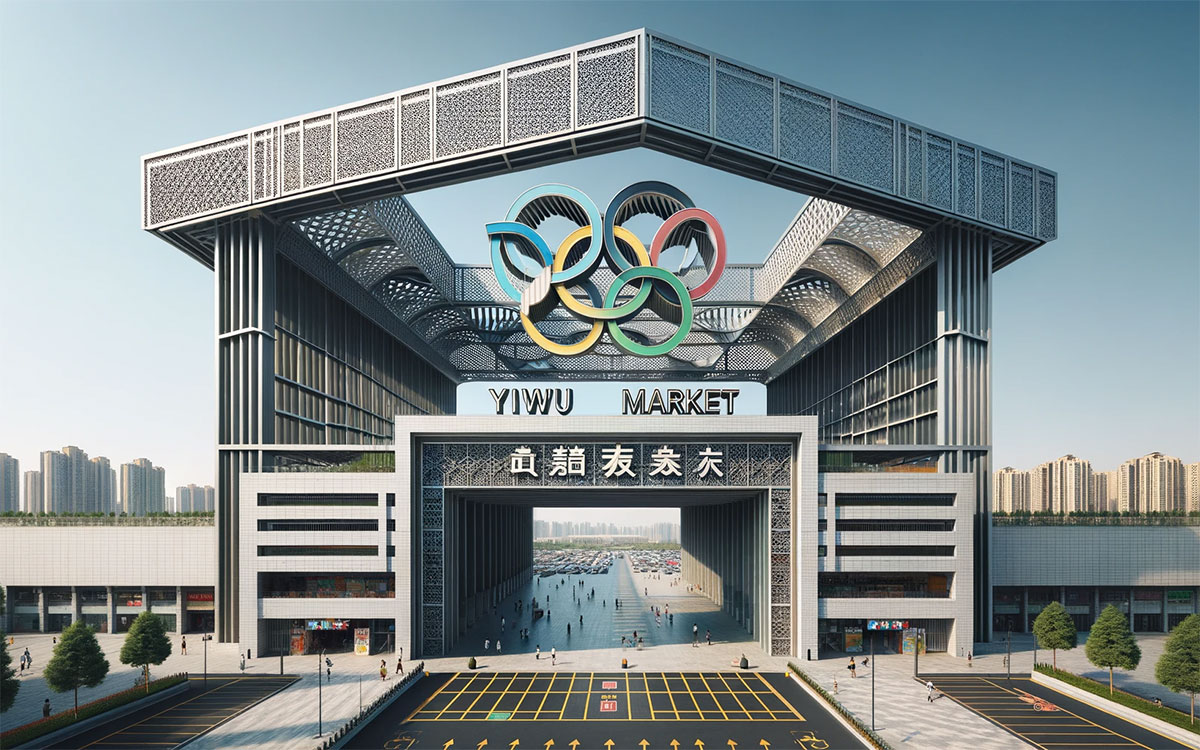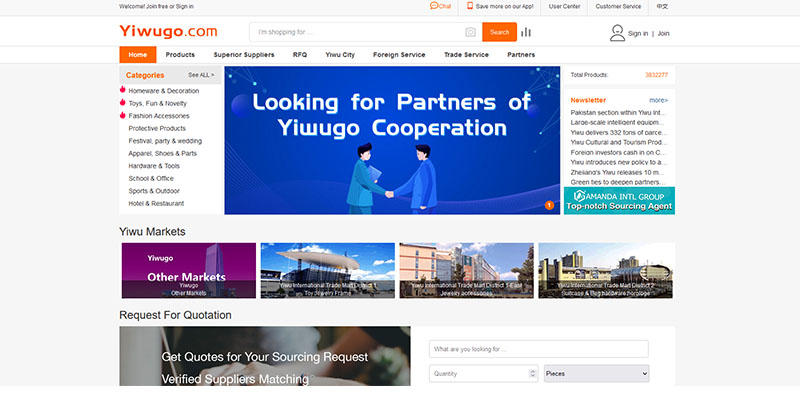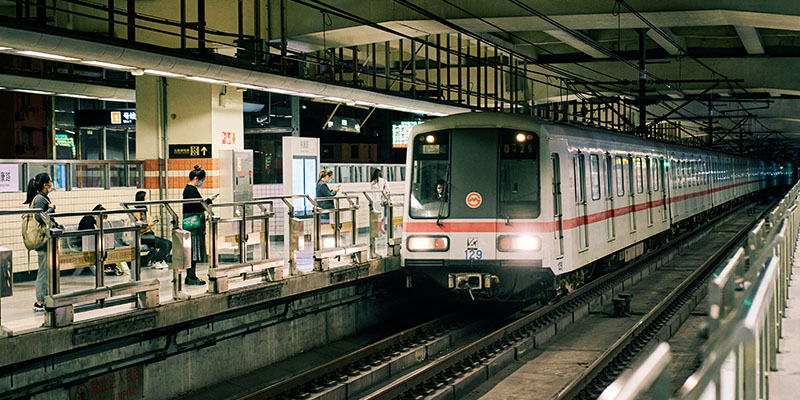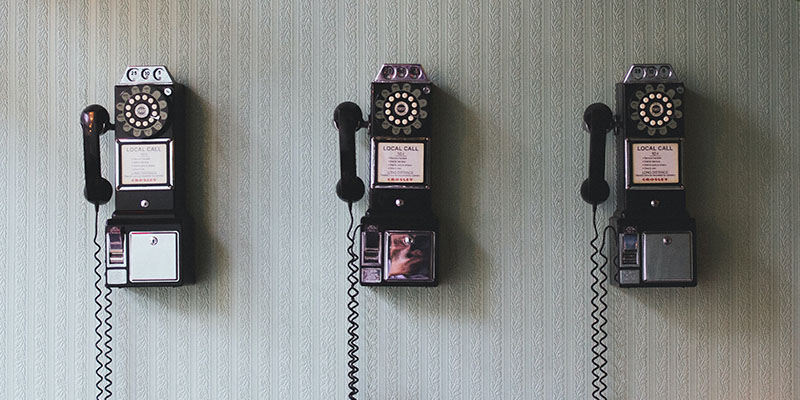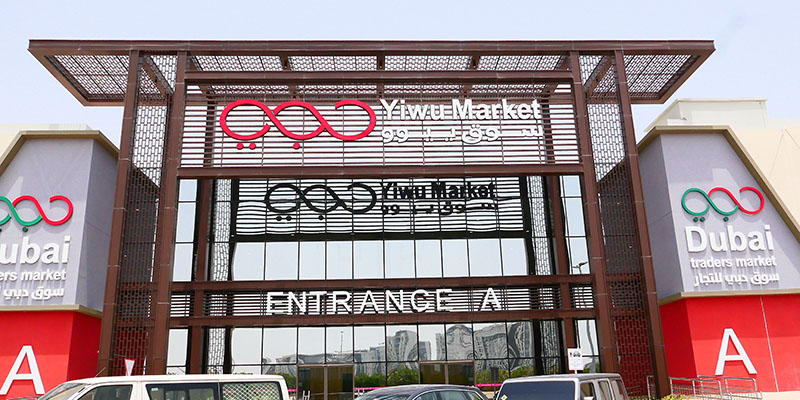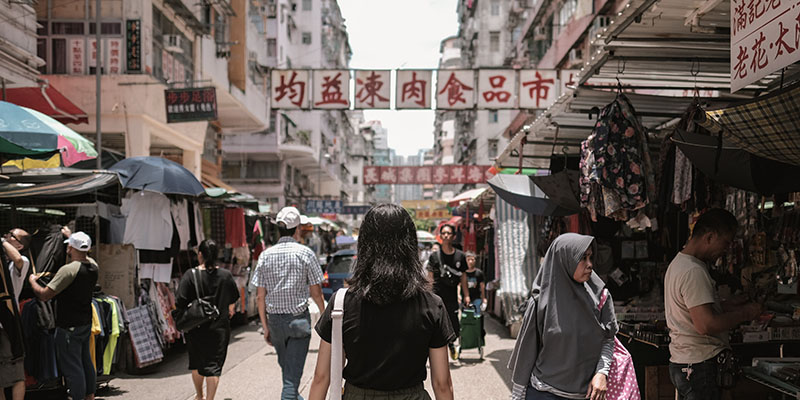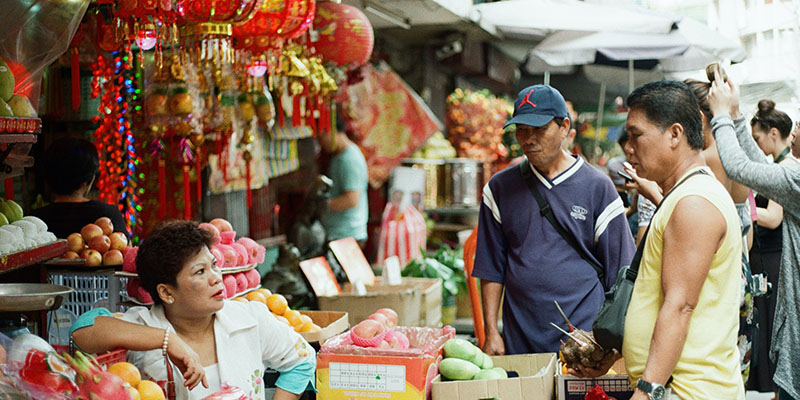Sourcing a wide range of products to sell with high margins for your online store can be a challenging task.
That’s where the Yiwu Market comes in. This massive wholesale market has hundreds of thousands of products to choose from and caters to businesses of all sizes – even those with small orders and low MOQs.
In this article, I’ll provide you with a full review of the Yiwu Market and share some tips to help you make the most of your visit.
Get My Free Mini Course On How To Start A Successful Ecommerce Store
If you are interested in starting an ecommerce business, I put together a comprehensive package of resources that will help you launch your own online store from complete scratch. Be sure to grab it before you leave!
What Is Yiwu Market?
Yiwu Market, located in Yiwu City, Zhejiang Province, China, is one of the world’s largest wholesale markets and is well known for its extensive selection of small and cheap goods.
With over 75,000 shops, the Yiwu market offers more than 500,000 different products, making it the largest export center in China.
Unlike trade shows like the Canton Fair or Global Sources, which only take place twice a year, Yiwu Market is open year-round (except for a few specific holidays.)
One of the benefits of sourcing products from the Yiwu Market is that you can have them shipped immediately to your warehouse. And because of the market’s proximity to major shipping ports, the cost is very reasonable.
While the market mainly caters to retailers and trading companies, you’ll also find suppliers offering low-priced commodity products such as accessories, handbags, and textiles.
One thing to note is that most items with well-known brand names in the Yiwu market are knock-offs.
In other words, if you’re looking for high-end or authentic products, the Yiwu market might not be the best fit for you.
What Is Yiwugo?
Yiwugo is the official website of the Yiwu Market, featuring the market’s 75,000 shops and serving buyers who cannot attend the market in person.
One unique feature of Yiwugo is its 360° panoramic display of the various shops, which gives visitors an immersive experience as if they were inside the market.
There’s also a mobile app which will allow you to browse the market and shop directly from your phone.
All in all, Yiwugo is a helpful resource for buyers looking to source products from the Yiwu Commodity Market without having to physically visit China.
How To Find Suppliers From Yiwu Market
You can find China wholesale suppliers from the Yiwu Market by either visiting the market in person or by shopping on the Yiwugo website.
If you’re visiting in person, you should know that there are five districts spread across four floors. Typically, suppliers selling similar products are grouped together in the same area, making it easy for buyers to compare prices.
The following chart displays the different commodities and their locations within the Yiwu market:
| DISTRICT | 1ST FLOOR | 2ND FLOOR | 3RD FLOOR | 4TH FLOOR |
| District 1 | Artificial flowers, Toys | Hair Ornament, Jewelry | Crafts, Jewelry Accessory | Factory Outlet |
| District 2 | Bags, Rainwear | Tools, Hardware, other fittings | Electronics & Digital, Clocks & Watches | Huge showrooms |
| District 3 | Stationary and Office items | Stationary and Office items | Cosmetics, Clothing Accessories | Cosmetics, Clothing Accessories |
| District 4 | Socks | Daily necessities, Knitting items | Wool Yarn, Sewing Accessories | Factory Outlet |
| District 5 | Imported goods | Beddings | Fabrics, Knitting items | Auto Accessories |
I recommend that you have a clear idea of what you want to purchase before you arrive, as exploring the entire market could take several days.
Also, keep in mind that Yiwu is mainly focused on inexpensive, mass-market products to sell and may not be suitable for sourcing higher-end or niche products.
What To Buy At Yiwu Market
The Yiwu Market is relevant to buyers looking to source low-cost commodity goods at low minimum order quantities, such as ornaments, accessories, crafts, toys, textiles, office products, pet products, and other low dollar amount goods.
You can think of the Yiwu market as a Chinese version of The Dollar Store.
There are no factories in the market. Instead, most vendors are trading companies that buy goods from other factories.
As a result, you can’t put your brand on your products, nor can you customize anything that you buy. However, there is a huge variety of goods that you can sell online with very low MOQs.
Most items are in stock and ready to ship immediately or have short lead times.
For non-commodity items or private label products, you should visit the Canton Fair instead.
How Do You Get To The Yiwu Market?
You can travel to the Yiwu market by airplane, train, or bus.
If you’re arriving by plane, you can fly directly to Yiwu Airport, which serves domestic and international flights. From there, you can take a taxi or bus to the market from the airport.
Those who prefer taking the train can take subway Line 2 to Hongqiao Railway Station, the terminal station. Once you arrive at Hongqiao, you can buy a high-speed train ticket to Yiwu.
Trains leave from Shanghai every 5-10 minutes from 6:00 to 20:00, and it only takes 1.5 hours to reach the Yiwu market.
The bus is another option. Several bus lines connect Shanghai to Yiwu, with the journey taking between 1.5 to 3 hours.
The Yiwu Market is open daily from 9:00 AM to 5:30 PM.
How Do You Communicate With Yiwu Market Suppliers?
You can communicate with Yiwu Market suppliers using basic English, as most of them understand simple English terms – enough to inform you about the price and quality of items and other key details.
What I like about Yiwu Market suppliers is that they aren’t aggressive or pushy. You can walk into their shops, inquire about products, and leave without feeling obligated to buy.
If you come across a supplier who doesn’t speak English, you can use hand gestures to point out the products you’re interested in, and they’ll provide you with all the product details you need.
Keep in mind that prices are usually in RMB, not USD. For small purchases, it’s best to pay in cash and arrange delivery to your hotel.
If you’re interested in discussing manufacturing, private labeling, or product customization, I recommend that you hire a translator to ensure clear communication. Translators typically charge around 300 to 500 RMB ($50 to $80 USD) for a few hours.
If you need someone to inspect and ensure prompt delivery of goods, consider hiring a sourcing agent.
Should You Hire A Yiwu Agent?
If you have experience importing from China and have been to the Yiwu market before, you can manage without an agent by communicating with suppliers using basic English.
However, if you have never been to a Chinese wholesale market or are new to importing goods, hiring a sourcing agent may be worthwhile.
An agent will accompany you to the market, negotiate prices, inspect goods, and arrange for shipping. They will ensure you get a reasonable price and are able to import the right goods for your store.
Agents typically charge a commission of 3% to 10% of the order value. But be cautious of agents offering unusually low commission rates and extra services without additional charges, as they may be unreliable or lack experience.
Is There A Yiwu Market In Dubai?
Yiwu Market has expanded beyond its original location in China, with a second location opening in Dubai’s Jebel Ali Free Zone in June 2022.
The new Dubai Yiwu market caters to both the retail and wholesale industries and is part of the first phase of the Dubai Traders Market, a large marketplace within Jafza.
The market has around 1,600 mainland showrooms spread across two floors, with each section dedicated to different product categories, such as electronics and appliances, furniture and lighting, and tools and hardware.
Dubai’s Yiwu Market is the result of a partnership between DP World and the Chinese Yiwu Market. It was partly created to ease supply chain shortages caused by the pandemic.
The market’s location near Jebel Ali Port and Al Maktoum International Airport allows for cheaper and faster shipping.
Are There Any Other Marketplaces Like Yiwu Market In China?
There are several markets like the Yiwu market in China, including Shenzhen Huaqiangbei Electronic Market and Foshan Shunde Lecong Furniture City.
Each market or city is known for specializing in the wholesale trade of a specific niche. Here’s a list of other well-known markets:
| MARKET | PRODUCTS |
| Hangzhou Evergreen Clothing Market | All types of clothing |
| Beijing Tianyi Small Commodity Wholesale Market | Jewelry, Souvenirs, Office Supplies |
| Shenzhen Huaqiangbei Electronic Market | Computers, Communication Electronics, Consumer Electronics |
| Guangzhou Shahe Clothing Market | Clothing, Accessories |
| Foshan Shunde Lecong Furniture City | Home Furniture, Furniture Accessories |
| Guangzhou Baima Clothing Market | Plus Size Clothing, Men’s T-shirts |
| Guangzhou Thirteen Hongs of Canton | Women’s Clothing |
| Eastern Silk Market China | Silk Fabrics |
| Guangzhou Metropolis Shoes City | Shoes |
| China Textile Town | All types of fabrics |
| Wenzhou Trade City | Shoes |
Should You Buy From Yiwu Market?
If you want to source mass-market commodities with low minimum order requirements (MOQs), Yiwu Market is an ideal place for you to find products.
At Yiwu Market, you’ll rarely find an MOQ of over 50 pieces. (Many other wholesale vendors set their MOQs between 500 and 5000).
Just remember that most items sold at Yiwu are relatively inexpensive and won’t be suitable as standalone, high margin products to sell in your store.
If you’re looking for higher-quality products, check with other wholesale suppliers, as Yiwu may not be your best option.
Overall, the pros of the Yiwu market are low MOQs, a huge variety of cheap products, and short lead times. Most products are available to be shipped immediately.
The downside is that most items are cheaply made, you can’t customize or put your brand on the products, and none of the suppliers are factories.
As a result, you are likely not getting the best price, and most shopkeepers do not speak fluent English.
Overall, the best reason to buy from Yiwu Market is if you want to source accessories or add on items to what you already sell. For example, products sold at the Yiwu market make great products to throw in as free gifts with purchase.
What’s great is that you can purchase from 100 different shops at Yiwu and have your orders all combined into one big shipment back to your warehouse. Shopping at Yiwu is definitely convenient!

Ready To Get Serious About Starting An Online Business?
If you are really considering starting your own online business, then you have to check out my free mini course on How To Create A Niche Online Store In 5 Easy Steps.
In this 6 day mini course, I reveal the steps that my wife and I took to earn 100 thousand dollars in the span of just a year. Best of all, it's free and you'll receive weekly ecommerce tips and strategies!
Related Posts In How To Find Products To Sell
- How To Buy From Alibaba Safely (Complete Beginners Guide)
- Yiwu Market: A Guide To China’s Largest Wholesale Market
- Top 18 USA Wholesale Suppliers For Small Business
- How To Use Terapeak For eBay To Research Hot Items To Sell
- 10 Tips On Importing Alibaba Wholesale Products From China

Steve Chou is a highly recognized influencer in the ecommerce space and has taught thousands of students how to effectively sell physical products online over at ProfitableOnlineStore.com.
His blog, MyWifeQuitHerJob.com, has been featured in Forbes, Inc, The New York Times, Entrepreneur and MSNBC.
He's also a contributing author for BigCommerce, Klaviyo, ManyChat, Printful, Privy, CXL, Ecommerce Fuel, GlockApps, Privy, Social Media Examiner, Web Designer Depot, Sumo and other leading business publications.
In addition, he runs a popular ecommerce podcast, My Wife Quit Her Job, which is a top 25 marketing show on all of Apple Podcasts.
To stay up to date with all of the latest ecommerce trends, Steve runs a 7 figure ecommerce store, BumblebeeLinens.com, with his wife and puts on an annual ecommerce conference called The Sellers Summit.
Steve carries both a bachelors and a masters degree in electrical engineering from Stanford University. Despite majoring in electrical engineering, he spent a good portion of his graduate education studying entrepreneurship and the mechanics of running small businesses.


